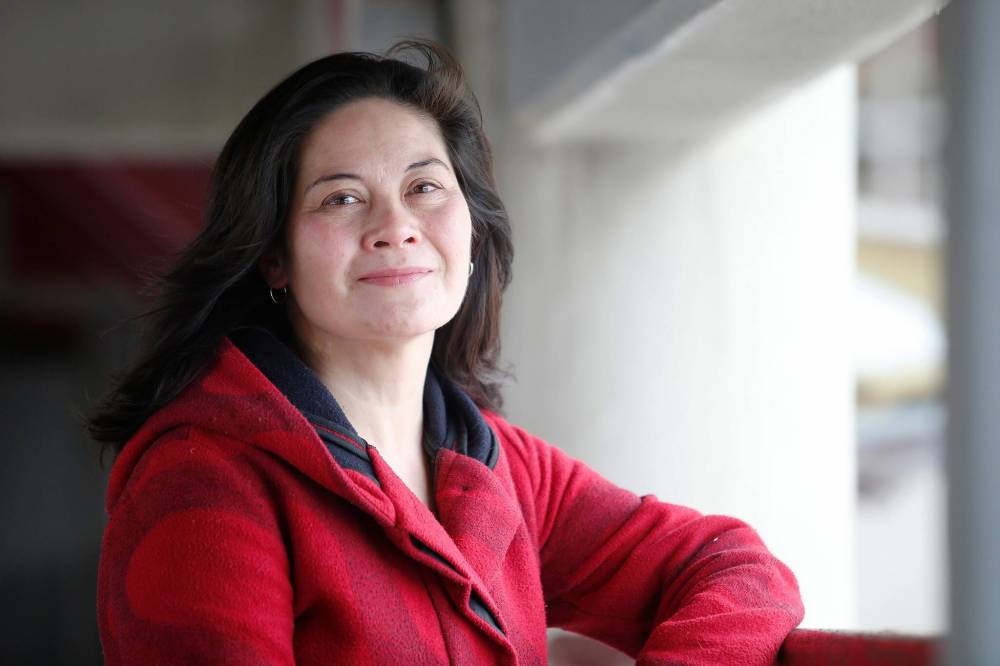U of M anti-racism task force calls for streamlined incident response
Advertisement
Read this article for free:
or
Already have an account? Log in here »
To continue reading, please subscribe:
Monthly Digital Subscription
$0 for the first 4 weeks*
- Enjoy unlimited reading on winnipegfreepress.com
- Read the E-Edition, our digital replica newspaper
- Access News Break, our award-winning app
- Play interactive puzzles
*No charge for 4 weeks then price increases to the regular rate of $19.00 plus GST every four weeks. Offer available to new and qualified returning subscribers only. Cancel any time.
Monthly Digital Subscription
$4.75/week*
- Enjoy unlimited reading on winnipegfreepress.com
- Read the E-Edition, our digital replica newspaper
- Access News Break, our award-winning app
- Play interactive puzzles
*Billed as $19 plus GST every four weeks. Cancel any time.
To continue reading, please subscribe:
Add Free Press access to your Brandon Sun subscription for only an additional
$1 for the first 4 weeks*
*Your next subscription payment will increase by $1.00 and you will be charged $16.99 plus GST for four weeks. After four weeks, your payment will increase to $23.99 plus GST every four weeks.
Read unlimited articles for free today:
or
Already have an account? Log in here »
Hey there, time traveller!
This article was published 27/02/2023 (1009 days ago), so information in it may no longer be current.
A new report calls on the University of Manitoba to create a streamlined process for responding to incidents of racism and publish all events that happen both in-person and online spaces.
One year after it was formed, U of M’s first-of-its-kind anti-racism task force has released its initial findings, and issued seven recommendations to improve safety for all community members.
The authors tout the importance of defining measurable targets and developing clear accountability structures to uphold the university’s commitment to anti-oppression work.
“The task force is really mindful that many task force reports get done, and nothing really happens,” said Tina Chen, a history professor who was appointed executive lead of equity, diversity and inclusion at Manitoba’s largest post-secondary institute in early 2022.
JOHN WOODS / WINNIPEG FREE PRESS FILES “The task force is really mindful that many task force reports get done, and nothing really happens,” said Tina Chen, a history professor who was appointed executive lead of equity, diversity and inclusion at U of M in early 2022.
“What I hope is quite different in this moment is that the reports that we’re seeing about anti-racism (now) are a result of broad-based community activism that is insisting the work be done,” she said Monday, noting the momentum that has been built around centralizing equity initiatives on campus in recent years is reason to be optimistic.
Senior administrators have established numerous working groups to outline ways to improve U of M’s approach to inclusion since a series of signs bearing the phrase, “It’s OK to be white” were posted on school buildings in 2018.
A now-defunct equity, diversity and inclusion committee, which was formed in 2019 and laid the groundwork for the latest task force, concluded an absence of co-ordination and underfunding resulted in EDI being perceived as a decentralized and devalued “side-project” across campuses.
Chen and her colleagues are prescribing a holistic approach, with the introduction of a universal policy overseen by the office of human rights and conflict management and promotes a trauma-informed response to incidents.
“(An overarching policy) is needed to create a campus environment that is physically and psychologically safe as well as free of all forms of racism and discrimination… It must be comprehensive in scope, going well beyond any one faculty, office or policy,” states an excerpt from the newly-released report.
The calls to action also include providing education for decision makers at all levels — from residence advisors to deans — on using an anti-racism lens on the job and collecting and releasing demographic data to identify and close diversity gaps.
Many students are unaware of when or how to disclose microaggressions, among other issues, Chen said, adding all employees should be able to “listen for understanding” without judgment and know about potential avenues to help an individual decide whether they want to take further action.
“Having a capacity to report is a way of empowering people and ensuring that their experiences are validated,” the professor said.
Chen indicated there is also potential for sustained and ongoing change by building equity assessments into policy creation and review processes, one of the report’s key recommendations.
Systemic inequities need to be acknowledged every time brainstorming begins and leaders must then think critically about how they are present in existing policies so new ones do not perpetuate gaps — “rather than just thinking that best practices are neutral,” she added.
Chen used Manitoba’s decision to roll out COVID-19 vaccinations in a way that prioritized Indigenous peoples, citing race-based data on health outcomes, as an effective example of how to do just that.
The task force’s interim recommendations, submitted in November, were released earlier this month. A final followup report is anticipated in the spring.
maggie.macintosh@freepress.mb.ca
Twitter: @macintoshmaggie

Maggie Macintosh
Education reporter
Maggie Macintosh reports on education for the Free Press. Originally from Hamilton, Ont., she first reported for the Free Press in 2017. Read more about Maggie.
Funding for the Free Press education reporter comes from the Government of Canada through the Local Journalism Initiative.
Every piece of reporting Maggie produces is reviewed by an editing team before it is posted online or published in print — part of the Free Press‘s tradition, since 1872, of producing reliable independent journalism. Read more about Free Press’s history and mandate, and learn how our newsroom operates.
Our newsroom depends on a growing audience of readers to power our journalism. If you are not a paid reader, please consider becoming a subscriber.
Our newsroom depends on its audience of readers to power our journalism. Thank you for your support.


